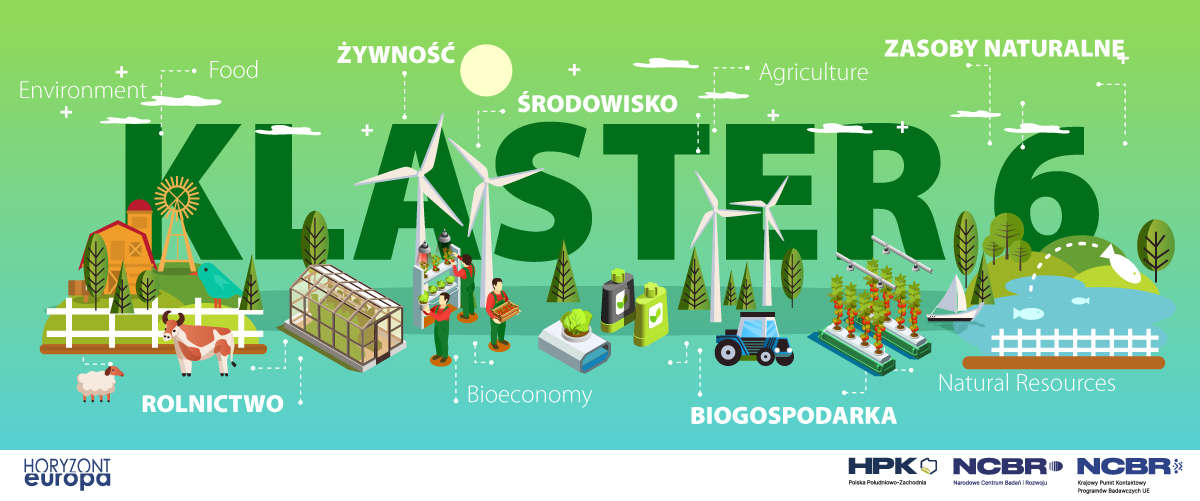
Horizon Europe Cluster 6 supports the European Commission’s new priorities for 2024–2029, focusing on two main goals: “Sustaining our quality of life: food security, water and nature” and “A new plan for Europe’s sustainable prosperity and competitiveness.” It also contributes to priorities like “Supporting people, strengthening our societies and our social model” and “Protecting our democracy, upholding our values.” The mission of Cluster 6 is to provide research and innovation opportunities that help balance environmental, social, and economic objectives. It aims to guide human activities toward sustainability by reducing environmental degradation, stopping and reversing biodiversity loss, managing natural resources better, and reaching the EU’s climate goals. These efforts must also ensure food and water security and promote sustainable prosperity and competitiveness in a changing global context.
Here we present a series of upcoming calls for proposals in Cluster 6, most relevant to the life sciences field, announced in the Work Programme for 2025–2027:
Call type: Single-stage
Action type: Research and Innovation Action (RIA)
Indicative EU contribution per project: ~EUR 5 million
Total indicative budget: EUR 10 million
Eligibility: Must apply the Multi-Actor Approach (MAA); include SSH disciplines; ensure active stakeholder involvement across the value chain.
Funding scheme: Lump sum contribution
Objectives & Expected Outcomes
The call targets research on the interlink between nutrition and mental health, aiming to improve public mental health through dietary interventions and better understanding of diet-related mechanisms. Proposals are expected to contribute to:
- Monitoring the effects of unhealthy diets on mental health across age groups and socio-economic backgrounds.
- Providing scientific evidence to support policymaking and professional practices related to nutrition and mental well-being.
- Identifying and characterising the roles of specific food groups, beverages, macro- and micronutrients in the prevention and management of mental health disorders, including gender-specific dietary effects.
- Strengthening the scientific basis for dietary recommendations and prevention campaigns.
- Investigating the gut microbiome–host–diet–health axis, identifying biomarkers and molecular pathways.
- Enhancing nutritional interventions for individuals with mental health conditions.
- Developing standardised indicators to assess the effects of dietary components on mental health.
Scope and Methodological Approach
Projects should:
- Map and assess nutritional components (macro-/micronutrients, food groups, beverages) that influence mental health across lifespan and populations.
- Investigate the gut-brain-microbiome axis, leveraging omics technologies and biomarkers.
- Include a Citizen Science approach and ensure data is FAIR (Findable, Accessible, Interoperable, Reusable).
- Integrate social sciences and humanities (SSH) to address psychological and socio-economic dimensions.
- Implement a multi-actor approach, involving healthcare professionals, industry, researchers, patients, and civil society from design to dissemination.
- Coordinate with relevant EU-funded projects (e.g., ERA4Health, Nutribrain, EURO-FINGERS) to ensure complementarity and avoid duplication.
Impact
This research will underpin the EU’s Food 2030 agenda, contribute to the 2023 EU comprehensive approach to mental health, and support the Healthier Together NCD initiative (2022) by:
- Enhancing dietary health and well-being through improved mental health outcomes.
- Supporting evidence-based nutrition policies and clinical guidelines.
- Addressing public health concerns related to depression, bipolar disorders, neurodegenerative diseases, and more.



